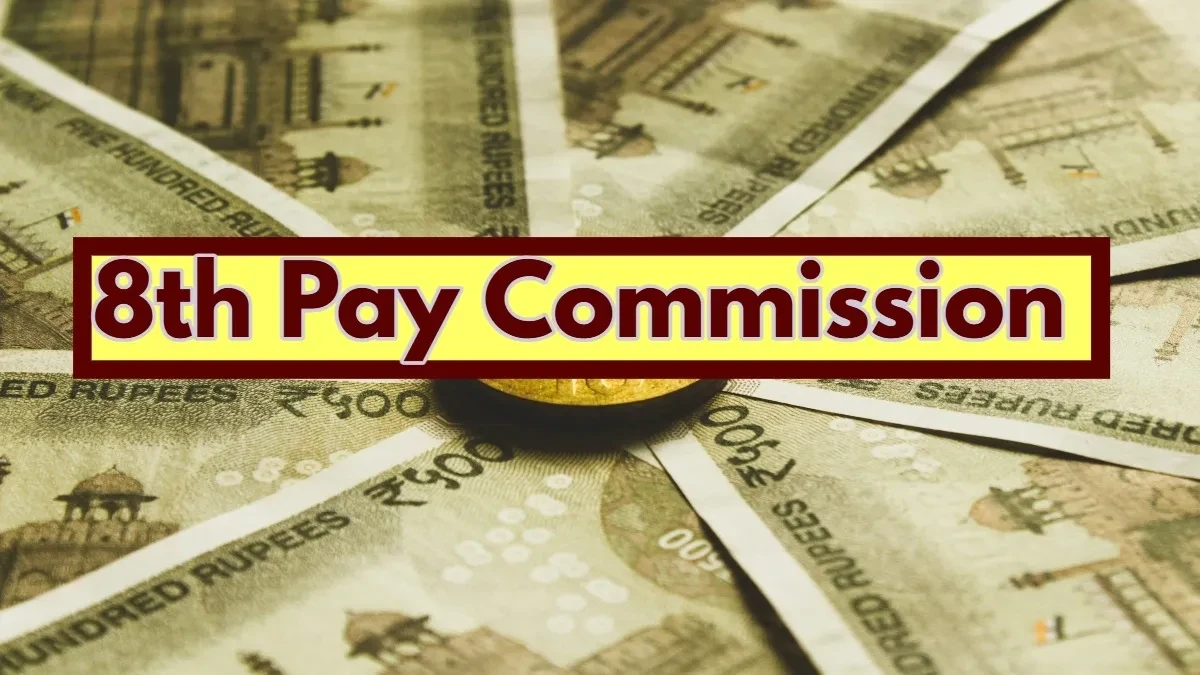All central government employees and pensioners are awaiting the implementation of the 8th Pay Commission with bated breath. Although the Union Cabinet approved the 8th CPC in January this year, the process to decide the Terms of Reference and appointment of CPC members has been delayed.
Following this, brokerage Kotak Institutional Equities is predicting the timespan for implementing the 8th CPC to be around 1.5 to 2 years. Simply put, the 8th Pay Commission is not likely to be implemented in 2026.
8th Pay Commission Fitment Factor & Salary Hike Prediction:
According to Kotak’s report, while it is premature and speculative to ascertain the impact of the 8th CPC on the fiscal, past CPC reports have pegged the impact at 0.6-0.8% of GDP. 8th CPC will likely keep the fiscal cost capped at similar levels, translating to around Rs2.4-3.2 trillion of additional expenditure.
“We estimate that at the minimum pay level (Rs18,000 as per 7th CPC), the fitment factor could be around 1.8 (moving up to Rs30,000 in 8th CPC). This implies a pay growth (in real terms) of around 13% (14.3% in 7CPC),” Kotak’s note said.
The main key component considered for increasing salaries and pensions is the fitment factor. There is a host of expectations that have been reported over the past months. The fitment factor could range from 1.92 to 2.86 under the 8th CPC. The majority are hopeful for a 2.86 fitment factor; however, reports of likely 2.08, 2.56 and 3.68 fitment factors are also discussed.
Currently, the fitment factor is at 2.57 in 7CPC. The minimum salary is Rs 18,000, which can go as high as Rs 250,000 depending upon the position, job roles and category, such as Level 1, Level 2 and Level 3, and so on.
8th Pay Commission Implementation Date:
That being said, Kotak is predicting 8th CPC recommendations to be implemented around 4QCY26/1QCY27.
“We note that the average time taken to submit the report is around 1.5 years from the date of CPC formation (1.5 years for 6th CPC and 7th CPC; around three years for 4th CPC and 5th CPC). The time taken by the government to implement after report submission has been 3-9 months,” said the note.
Why is the 8th Pay Commission expected to be implemented on January 1, 2026?
Earlier, 8CPC was expected to be implemented in line with the standard gap between the previous pay commissions. Before 8CPC, government employees followed the Pay Matrix of the 7th Pay Commission, which was implemented on January 1, 2016. Hence, 8CPC should be effective from January 2026. The standard gap between two pay commissions is usually 10 years.
However, the delayed process has made experts push the deadline of January 1, 2026, further.
8th Pay Commission Parliament Discussion:
As per PTI report, to a question on the reasons for not setting up the Commission even after six months, Minister of Finance Pankaj Chaudhary said, “Inputs have been sought from major stakeholders, including Ministry of Defence, Ministry of Home Affairs, Department of Personnel & Training and from States”.
When asked about the date for implementing 8th CPC for employees and pensioners, Chaudhary stated that the implementation would be taken up once the recommendations are made by the 8th CPC and are accepted by the government.
8th Pay Commission Delay:
The 8th Pay Commission was approved in January 2025. Following this, the Joint Consultative Machinery has been in discussions to set the Terms of Reference for the 8th CPC; however, this is yet to be finalized by the government.
In general terms, the usual process is to constitute the CPC, which will then begin deliberations with central and state government officials, representatives of employee organizations and pensioners, experts, etc.
After the consultations, the CPC members will submit their report and recommendations to the government. Later on, the government will seek Cabinet approval to implement the recommendations.
